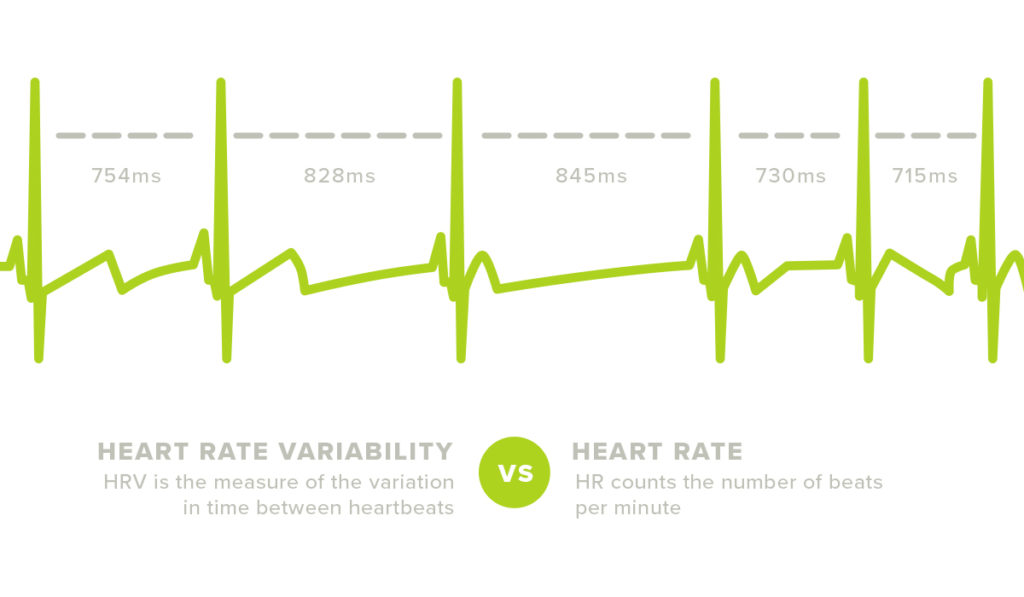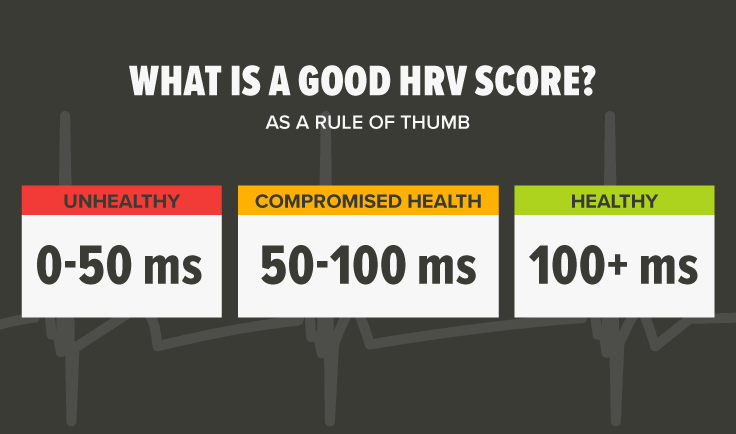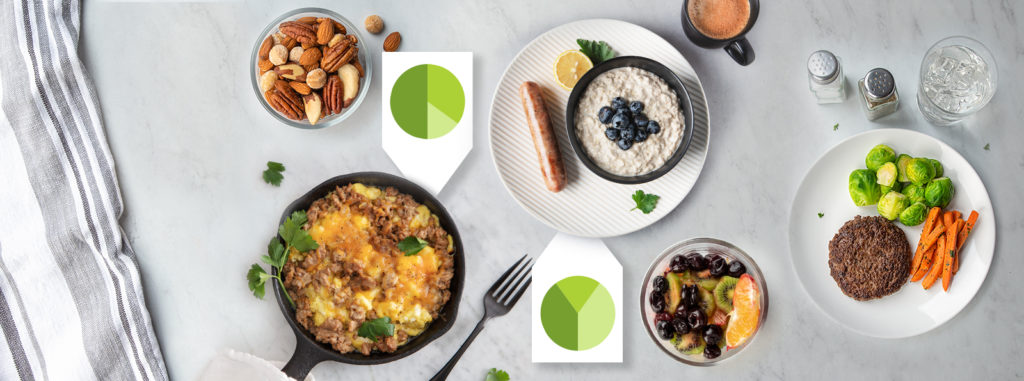Summertime is full of “beach body” marketing and quick fix gimmick diets, and while fat loss is a great goal it’s High HRV is associated with better overall health, including greater cardiovascular health, improved mental health and less inflammation in the body. Additionally, researchers, coaches and athletes often use HRV scores as a marker to shows an individual’s “readiness” and resilience.
What is heart rate variability (HRV)?
Heart rate variability is the measure of the variation in time between heartbeats. Unlike basic heart rate (HR) that counts the number of beats per minute, HRV looks much closer at the exact changes in time between successive beats and the balance between sympathetic and parasympathetic tone.
The sympathetic nervous system prepares the body for intense physical activity (fight-or-flight) and the parasympathetic nervous system relaxes the mind and body.
The variation in your heartbeats within milliseconds (ms) reflects this balance.

Low HRV: If the intervals between your heartbeats are relatively constant, then you are in a fight or flight state and your HRV is low.
High HRV: If the interval length variates, you are in a more relaxed state and your HRV is high. This is associated with good recovery.

Nutrition Tips for Raising HRV Scores
1. Keep your meal timing consistent.
Our gut has a clock and rhythms that are interrupted when we graze from morning to night. By keeping your meal timing day-to-day consistent with your natural rhythms you won’t throw your sympathetic nervous system into overdrive.
2. Fix your micronutrient deficiencies.
A large percentage of people have at least one micronutrient deficiency. Poor food quality and eating the same things too often make it difficult to get the nutrition you need to operate at your best.
3. Stay hydrated.
In general, drink between half an ounce and an ounce of water for each pound you weigh, every day. For example, if you weigh 150 pounds, that would be 75 to 150 ounces of water per day.
4. Track your macros.
Low carb, Paleo, IIFYM … what diet works? The latest research suggests that “what diet works best” is somewhat unique to the individual. So track your meals and macros and see what works best for you. (Bonus tip: Metabolic Meals’ packages have scannable barcodes that work with your fitness apps)
Sample HRV Meal Plan
Created by our nutritionists with the above tips in mind.

Breakfast | Tex-Mex Breakfast Skillet

Dessert | Antioxidant Rich Fruit bowl
Want to design your own day? Check out the rotating menu for ready-made meals, signature sides, premium proteins and desserts.
Other Tips for Raising HRV Scores
1. Go to bed before 11 p.m. and get 8 hours of sleep.
Cortisol (a fight or flight hormone) is elevated in people who don’t get enough sleep and higher than normal cortisol levels lead to insomnia — it’s a vicious cycle. Early to bed, early to rise matches our circadian rhythm and helps keep a normal cortisol curve.
2. Do “just enough” aerobic training.
On your rest days, stay well under your aerobic threshold for a 20-30 minute “mini-workout.” Pick a pace that you could do for an hour or longer and try not to produce much lactic acid. For some people this may just be a brisk walk. This lower intensity workout begins a series of body processes that coax the body into recovering faster.
3. Take a yoga class.
Yoga aims to improve mind-body coordination while improving blood flow and tissue oxygenation. People report clearer thinking, better judgement and more effective decision making after participating in yoga. In terms of health and recovery, a significant raise in HRV can be commonly seen after one month of practicing yoga several times a week.
HRV is not a one-size-fits-all number. It’s a highly sensitive metric and varies greatly for each individual. Scores can vary widely from person to person, so it is important to find your personal average and focus on improving it. Heart health is important — really important. And creating habits that have positive impact on our health now pay dividends in the future.








